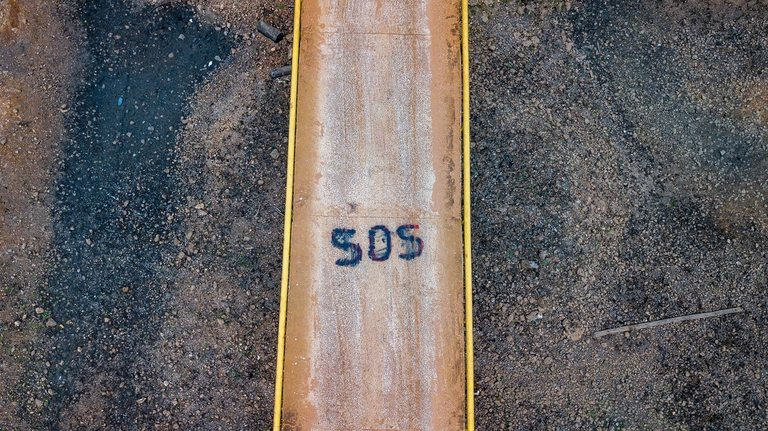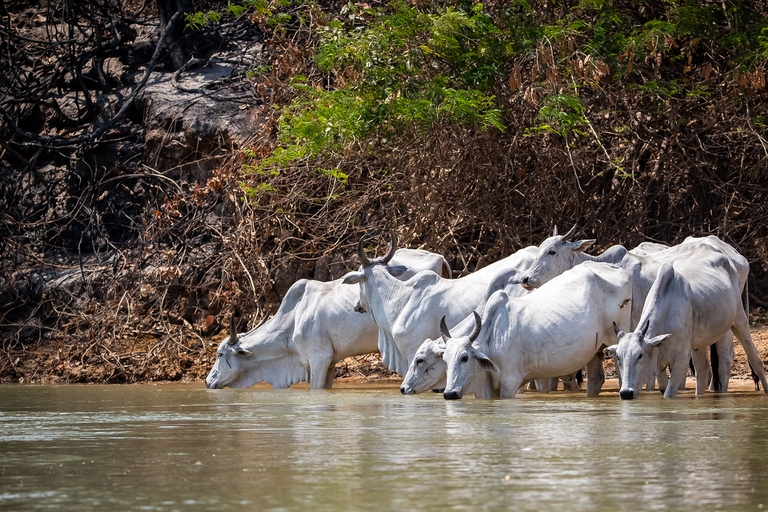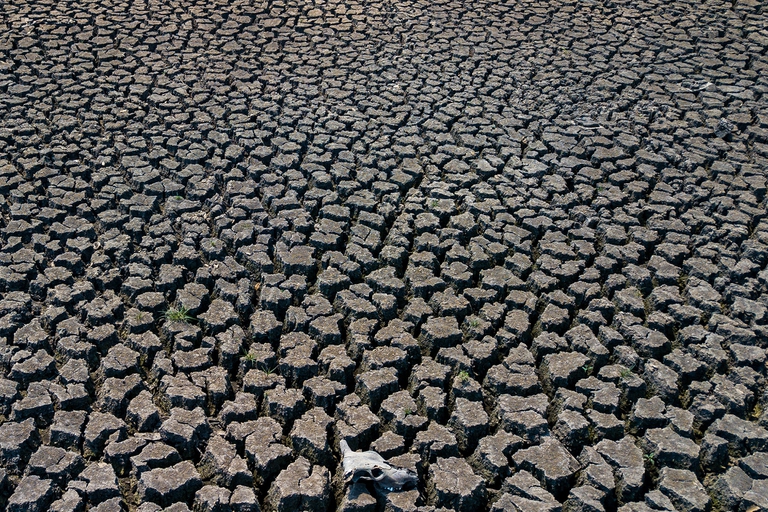
A report by Ember explains that in 2025 electricity generation from renewables (solar, wind and hydropower) surpassed that from fossil fuel sources.
Brazil is in the throes of one of the worst droughts of the past century. Deforestation – and those who allow it – take the lion’s share of the blame.
Something truly paradoxical is happening in Brazil. Agriculture is dying out to make space for agriculture. The need to constantly increase the amount of arable land has led deforestation rates to rise to an alarming level. Just think that the figure for May 2021 was 67 per cent higher than for that month in 2020.
Without trees, however, the land dries up. Without their ability to reduce the temperature and the amount of carbon dioxide in the atmosphere, the mercury column keeps on rising. Compromising the integrity of one of planet Earth’s most important biomes (a biome is an ecosystem characterised by a distinctive set of flora and fauna), the Amazon rainforest, means irreversibly altering the climate and the water cycle. And that explains it all: agriculture in Brazil is dying because there’s no more rain. Drought is withering all forms of life.
The citizens of the large South American country are facing the worst drought in the past ninety years. Rural states, especially São Paulo and Mato Grosso do Sul, have been the worst hit. The consequences reflect primarily on the citizens, who are forced to pay more and more expensive bills. Despite the fact that Brazil has reduced its dependence on hydropower from 90 to 65 per cent, resorting to using electricity from thermal energy plants is significantly more costly. There’s even a real risk of blackouts.
We’re facing the perfect storm.
Families have been asked to reduce their consumption of water and electricity, which is even having to be rationed. The recent rainy season was the driest of the past twenty years and water reserves are suffering greatly. The consequences of this can be clearly seen at the Iguazu Falls, the largest waterfall in the world, which, instead of flowing in all their usual glory, look like they’re dripping from a broken tap. It’s an upsetting sight.
Agriculture, Brazil’s strongest economic sector, has been brought to its knees. This risks severely compromising the recovery of a country that was already wracked by the Covid-19 pandemic, which caused over 500,000 deaths. Another worrying factor is the fast-approaching wildfire season, which usually starts in July. The fires, some of which are the result of arson, could lead to a particularly dramatic situation in the Amazon given the current conditions. “We’re facing the perfect storm,” warns Liana Anderson, a biologist at Brazil’s national centre for monitoring natural disasters. “The current situation will make it extremely difficult to keep the fires under control”.
The alarm was sounded in May, and even president Jair Bolsonaro, notorious for having underplayed the danger of the pandemic, seemed to have taken the threat of drought in his country a lot more seriously. However, he has consistently failed to implement effective anti-deforestation measures, seeing the Amazon merely as an economic resource.
“It’s been eight years since it rained as much as it should,” meteorologist Marcelo Seluchi explained to the New York Times. “It’s as if we were using a tank that never gets filled, and each year we use more water in the hope that things will get better. But, so far, this hasn’t been the case”.
Seluchi adds that phenomena like La Niña, combined with climate change and the destruction of green spaces, are causing all of this. The link between desertification and deforestation has also been confirmed by Greenpeace Brazil. Marcelo Laterman, a campaigner for the organisation, highlights the fact that the forest’s water recovery system plays a vital role in distributing rains throughout all of South America.
A study, carried out by Argemiro Leite-Filho, an environmental scientist at the Federal University of Minas Gerais, looked at the data for the period between 1999 and 2019. It found that a 10 per cent increase in the rate of deforestation in the Amazon leads yearly rainfall to decrease by 49 millimetres.
Furthermore, climate change has altered a cycle that scientists call the “flying river“, where huge quantities of water vapour from the Atlantic Ocean are carried through the atmosphere to other parts of South America. This process, climatologist José Marengo points out, is another reason why it rains less.
It is vitally important to raise awareness among farmers on these issues because many don’t believe that there’s a link between cutting down trees and the serious risk that their livelihoods are facing. Top-down solutions at the governmental level aren’t enough. Bolsonaro’s announcement of wanting to combat illegal deforestation, for example, has not been followed by any concrete actions besides the deployment of military personnel, who many believe to be unsuited to tackling the problem. A bottom-up approach, based around raising awareness among the people who use the land, could be much more valuable. Who better than farmers, whose families and livelihoods depend on the well-being of the land, is suited to become defenders of the forest? This might seem absurd, but it really isn’t. Sometimes simple solutions are the best way to tackle complex problems. Like saying no to felling a tree.
Siamo anche su WhatsApp. Segui il canale ufficiale LifeGate per restare aggiornata, aggiornato sulle ultime notizie e sulle nostre attività.
![]()
Quest'opera è distribuita con Licenza Creative Commons Attribuzione - Non commerciale - Non opere derivate 4.0 Internazionale.
A report by Ember explains that in 2025 electricity generation from renewables (solar, wind and hydropower) surpassed that from fossil fuel sources.
The Tyler Prize, considered the “Nobel Prize for the Environment,” has been awarded to Toby Kiers, an American biologist working in Amsterdam.
Belgium is one of the countries most exposed to climate change. Dune–dikes are a solution to curb sea-level rise.
Between October 2024 and September 2025, the average temperature in the Arctic was 1.6 degrees Celsius higher than during the 1991–2020 period.
Undeclared conflicts of interest, paid authors, lack of transparency: one of the most cited studies on glyphosate, published in 2000, has been retracted.
The Copernicus service has released data for the first eleven months of 2025: global warming is set to come close to last year’s record.
The European Council and Parliament have reached an agreement on the European Commission’s proposal to deregulate new GMOs. But farming, organic agriculture, and environmental organizations are calling for it to be stopped.
The world’s second-largest producer has taken a historic decision. However, farms will have until 2034 to shut down.
A Greenpeace report denounces Russia’s political and economic model: a nexus of extractivism, authoritarianism and war that is destroying the environment, with serious repercussions for the global ecosystem.










